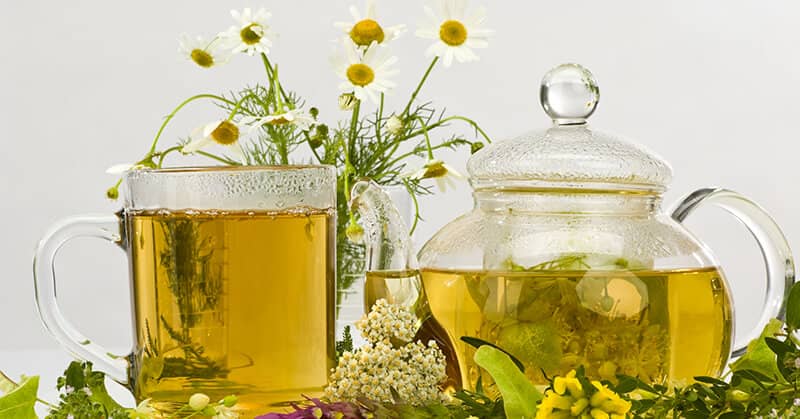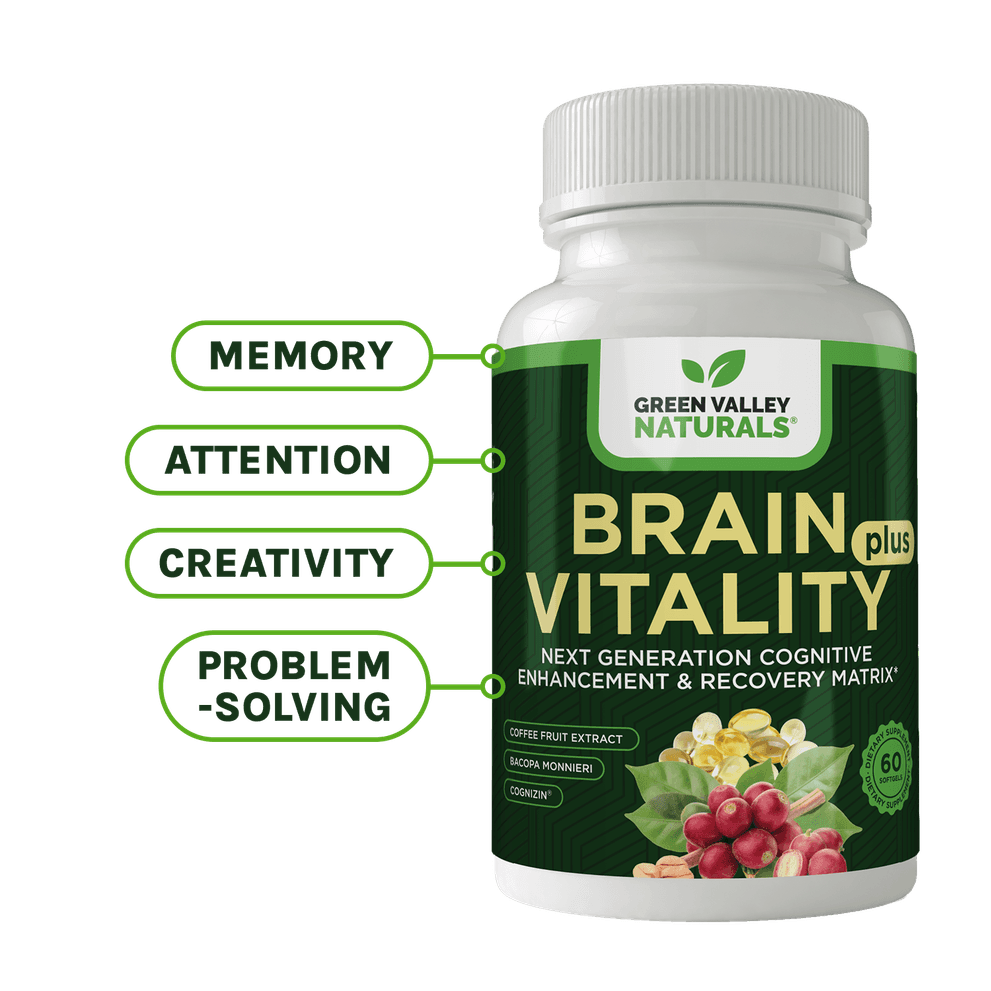
What if a simple cup of tea could do more than help you unwind? One centuries-old herbal remedy is now capturing the attention of modern science for its impressive health benefits. Beyond its well-known calming effects, new research reveals it may be crucial in lowering blood sugar, reducing anxiety, and even boosting brain function.
Key Takeaways
-
Chamomile Helps Regulate Blood Sugar: Research shows that drinking chamomile tea can lower blood sugar levels, improve insulin sensitivity, and enhance the body’s antioxidant defense.
-
Natural Anxiety & Sleep Support: Chamomile has been found to help those with generalized anxiety disorder, improve sleep quality, and support emotional well-being.
-
Brain-Boosting Properties: Chamomile, especially when combined with saffron, has been linked to increased BDNF levels, which may enhance cognitive function and improve mood.
The Hidden Health Benefits of Chamomile
One of the most remarkable things about many herbs is their versatility. Unlike pharmaceutical drugs, herbs contain a valuable mixture of beneficial natural compounds that modern science is just starting to unravel. When these compounds work together, they’re often effective against several health issues simultaneously.
There’s no better example than the ancient herb chamomile. The latest research shows that this centuries-old herb does more than relax the body for a good night’s sleep. It can also manage anxiety and even lower blood sugar.
Can a Cup of Tea Improve Your Blood Sugar?
Almost 40 million people have diabetes, and many millions more have what’s called pre-diabetes and are in danger of developing the full-blown disease. If you’re one of them, dietary changes, nutritional supplements, and prescription medication can help. However, studies now show that chamomile, an herb used medicinally for thousands of years, might be the easiest solution for them all.
As for anxiety, chamomile can help that, too. And suppose you’re among the one in three Americans who have experienced significant anxiety that’s powerful enough to disrupt daily life. In that case, you know what a blessing any safe, natural relief can be.
Let’s start with chamomile and blood sugar…
Easing blood sugar problems
A growing number of studies worldwide show that taking chamomile extracts and drinking chamomile tea can help people with diabetes keep their blood sugar under better control.
For instance, a randomized clinical trial in the Middle East involved 64 people between 30 and 60 with diabetes who consumed chamomile tea three times a day after each meal for two months. Researchers found that the chamomile kept the participants’ blood sugar lower, reduced their insulin resistance, and improved their bodies’ ability to utilize antioxidants to protect cells and tissues.1
Several studies have shown that chamomile may lower blood sugar levels by enabling the liver to store more sugar as glycogen – the body’s reserve collection of starch used to fuel muscle movement when blood sugar runs low.2 And some of those same studies indicate that the natural chemicals in chamomile can inhibit the action of enzymes in the digestive tract that allow the quick absorption of sugar from the food we eat.
While chamomile tea has long been known as a relaxing, calming beverage that can prepare the body for sleep, researchers have only recently begun to study exactly how effective the herb is against anxiety and other mood problems.
And the results of those studies affirm its effectiveness.
Helps generalized anxiety disorder
A review study involving scientists from the Middle East and Asia found that chamomile can help with generalized anxiety disorder and help folks sleep better.3 This is important since insomnia is a growing problem. In fact, so many people struggle to get a good night's sleep that some couples have resorted to sleeping separately.
Studies that have combined saffron and chamomile have found a synergistic effect on treating depression. In one of these investigations, a randomized trial in Asia, people treated for depression drank tea made from saffron and chamomile twice a day for six months.
Tests of these tea drinkers found that the herbs were linked to improvements in their brain’s BDNF (brain-derived neurotrophic factor) levels. BDNF helps support neuronal growth and survival; some researchers consider it a natural antidepressant.
This is exciting news because, as we’ve long reported here, increasing BDNF levels in the brain can improve focus, attention, and mental recall. I believe that using all-natural BDNF boosters such as exercise and herbs like coffee cherry are an important first line of defense against memory loss. In other words, they can help you hold onto your mental sharpness much longer than you might otherwise. That's why here at Green Valley Natural's we formulated Brain Vitality Plus to contain a patented form of Whole Coffee Fruit Extract called Neurofactor™, which has been shown in clinical studies to support your body’s natural production of BDNF.
As for the saffron and chamomile tea, that’s something I’d recommend as well. Because in addition to raising BDNF, the levels of tryptophan in the brains of the people drinking these teas increased which, the researchers say, is connected to less depression and a deeper state of calm and relaxation. And that’s all from drinking two cups of tea!
But perhaps best of all, along with those improvements, the teas increased the effectiveness of anti-depressant pharmaceuticals, and, at the end of the six months, the depressive symptoms of the people consuming the tea improved significantly.4
My takeaway
My take after reviewing the growing body of global research on chamomile’s usefulness as health promoter and relaxation inducer is that this is only the beginning of the many benefits of this remarkable herb. This herb is so effective that one group of researchers writing about its potential entitled their study – “An Herbal Medicine of the Past with a Bright Future.”5 I have to agree. If only conventional doctors would add this medicinal herb to their arsenal in the fight against anxiety, depression, high blood sugar, and insomnia. Until that happens, we'll keep you posted on important, safe, natural ways to better your health and longevity.
Summary
Chamomile, long revered for its calming effects, is proving to be a powerful natural remedy for a variety of health concerns. Scientific studies suggest that chamomile can help regulate blood sugar, reduce anxiety, and even support brain function by increasing BDNF (brain-derived neurotrophic factor). Its ability to work synergistically with other herbs like saffron further enhances its benefits. With research continuing to unveil its potential, chamomile is quickly becoming a must-have herbal solution for modern health challenges.
Other than chamomile spices like turmeric, ginger, and cinnamon also play a powerful role in balancing blood sugar levels.
Frequently Asked Questions
How does chamomile help with blood sugar control?
Chamomile has been shown to enhance insulin sensitivity, lower blood sugar levels, and help the liver store glucose more efficiently.Can chamomile really reduce anxiety and stress?
Yes, clinical studies have found that chamomile extract can help reduce symptoms of generalized anxiety disorder and promote relaxation.Does chamomile have any benefits for brain health?
Research suggests that chamomile, particularly when combined with saffron, can increase BDNF levels, which are crucial for cognitive function and mental clarity.Is chamomile safe for daily consumption?
Generally, chamomile is considered safe for most people when consumed in moderation. However, those with allergies to ragweed or related plants should consult a doctor.Can chamomile be used as a natural sleep aid?
Absolutely! Chamomile’s calming properties make it an effective natural remedy for improving sleep quality and reducing nighttime restlessness.- Zemestani M, Rafraf M, Asghari-Jafarabadi M. Chamomile tea improves glycemic indices and antioxidants status in patients with type 2 diabetes mellitus. Nutrition. 2016 Jan;32(1):66-72. doi: 10.1016/j.nut.2015.07.011. Epub 2015 Aug 14. PMID: 26437613.
- Kato A, Minoshima Y, Yamamoto J, Adachi I, Watson AA, Nash RJ. Protective effects of dietary chamomile tea on diabetic complications. J Agric Food Chem. 2008 Sep 10;56(17):8206-11. doi: 10.1021/jf8014365. Epub 2008 Aug 6. PMID: 18681440.
- Hieu TH, Dibas M, Surya Dila KA, Sherif NA, Hashmi MU, Mahmoud M, Trang NTT, Abdullah L, Nghia TLB, Y MN, Hirayama K, Huy NT. Therapeutic efficacy and safety of chamomile for state anxiety, generalized anxiety disorder, insomnia, and sleep quality: A systematic review and meta-analysis of randomized trials and quasi-randomized trials. Phytother Res. 2019 Jun;33(6):1604-1615. doi: 10.1002/ptr.6349. Epub 2019 Apr 21. PMID: 31006899.
- Ahmad S, Azhar A, Tikmani P, Rafique H, Khan A, Mesiya H, Saeed H. A randomized clinical trial to test efficacy of chamomile and saffron for neuroprotective and anti-inflammatory responses in depressive patients. Heliyon. 2022 Sep 30;8(10):e10774. doi: 10.1016/j.heliyon.2022.e10774. PMID: 36217471; PMCID: PMC9547202.
- Srivastava JK, Shankar E, Gupta S. Chamomile: A herbal medicine of the past with bright future. Mol Med Rep. 2010 Nov 1;3(6):895-901. doi: 10.3892/mmr.2010.377. PMID: 21132119; PMCID: PMC2995283.

